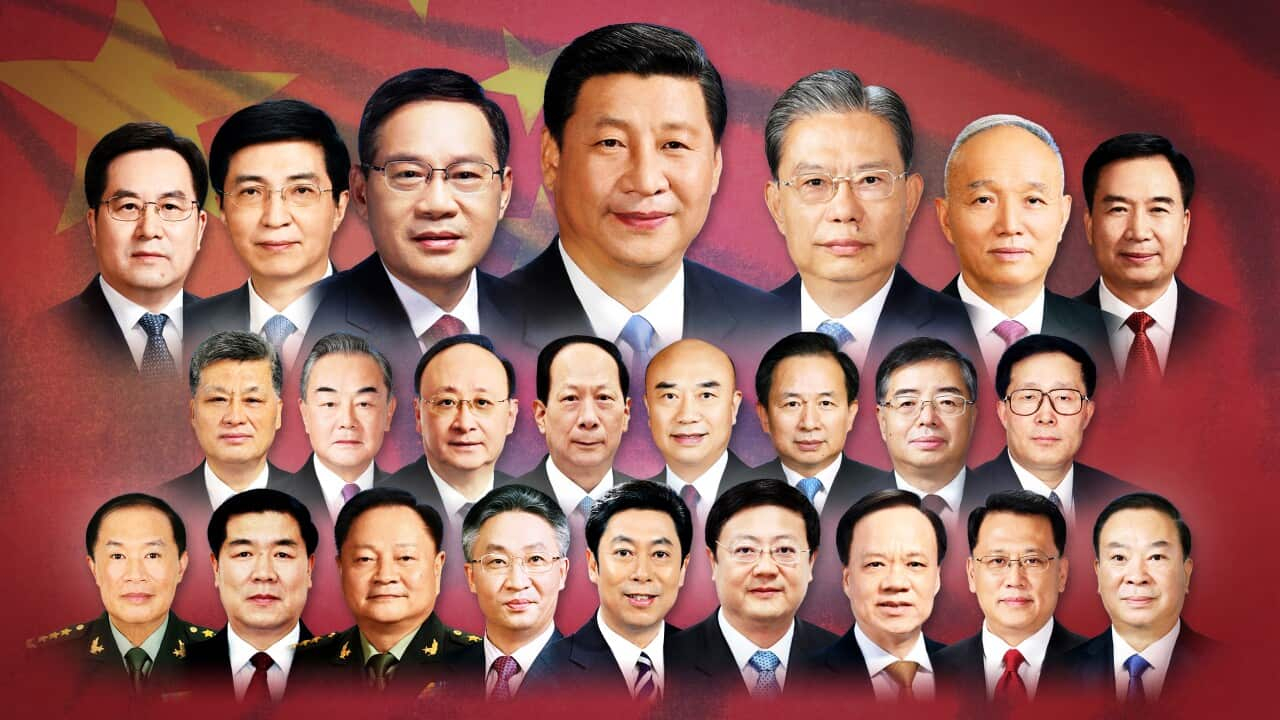Key Points
- China has passed legislation aimed at giving women more protection against gender discrimination and sexual harassment
- It comes after activists expressed ongoing concern over women's rights, sexual harassment, and gender inequality
China has announced it has passed legislation aimed at and sexual harassment after activists expressed ongoing concern over women's rights.
Sunday's announcement came days after the bill was submitted to the country's top legislature after a third revision and extensive public input.
China has historically had conservative attitudes toward women's roles and rights, and details of the amendment were not immediately available.
So what could this legislation include, and will it change the lives of women in China?
What do we know so far?
The "Women's Rights and Interests Protection Law" bill was submitted to the Standing Committee of the National People's Congress (NPC) on Thursday.
Tens of thousands of people had sent in suggestions for what they wanted to see in the legislation, the NPC said on its website.
State news agency Xinhua said the legislation "strengthens the protection of the rights and interests of disadvantaged groups such as poor women, elderly women, and disabled women".
According to Xinhua, employers will be held to account if women's labour and social security rights and interests are violated, while obstructing the rescue of trafficked and kidnapped women will be specified as an offence.
The responsibility of local authorities to rescue trafficked and abducted women will also be set out, Xinhua said.
What is life currently like for women in China?
The amendment - which will come into effect in 2023 - is an update to laws that were initially passed in 1992, and amended in 2005 and 2018.
The legislation came after activists expressed concern about increasing government rhetoric on the value of traditional women's roles, and what some see as setbacks for women's rights and more restrictive attitudes towards abortion and women's bodily autonomy.
Images posted online early this year of a woman in chains also caused outrage and stirred debate about the handling of human trafficking, particularly in rural areas where the issue has been documented for years.
Jennifer Hsu, project director and research fellow at the Lowy Institute, told SBS News while the previous legislation was designed to support and protect women's rights, women continue to face numerous issues in society.
"Those sorts of issues that have come to the fore have caused a lot of public outrage about the treatment of women especially women who are very vulnerable (or have) mental health issues," she said.
"I think the review process of the draft earlier this year highlighted some of the things that have been sort of persistent problems in Chinese society in terms of sexual harassment and women's promotion in the workplace ... existing legislation is not properly implemented, and employers were able to get away with discrimination based on sex, age, all of those things."
Pan Wang is a senior lecturer in Chinese and Asian Studies at the University of New South Wales, and said while women have become more active in public life, inequality remains an issue for women in China.
"You do see an increasing number of women entrepreneurs, and involved in business, science, academia, and also women's educational level has increased significantly,
"And they have become more active in public life and their social status has changed, there are a lot of positives, but at the same time, you do see issues remain around gender inequality."
Dr Wang said the revised law reiterated gender equality as a national policy.
"This is also an official response to a number of social problems; for example, China's growing workplace discrimination enhanced by the implementation of the new family planning policy, the rising incidence of gender violence in recent years, and also sexism and sexual harassment."
Will the amendment make a difference?
Dr Wang said while the amendment could lead to some positive change, it is likely there will remain a gap between policies and practice.
"There are currently supportive frameworks and legal frameworks and policies and campaigns to support women's rights and interests, but in practice ... it's hard to see any significant changes," she said.
"For this one, certainly we do acknowledge the positive changes and we're pretty sure positive changes will happen... but to see some significant changes, it is a question mark for now."
Ms Hsu said for the legislation to make a difference, there would need to be a change in societal attitudes.
"The system isn't being properly geared to protect the rights of women despite the law; societal attitudes need to change, authorities' attitudes towards women need to change," she said.
"So unless you have the whole sort of 360 addressing of the issue, I don't think the law will adequately protect women unless all the stakeholders are on board."
With AAP.












